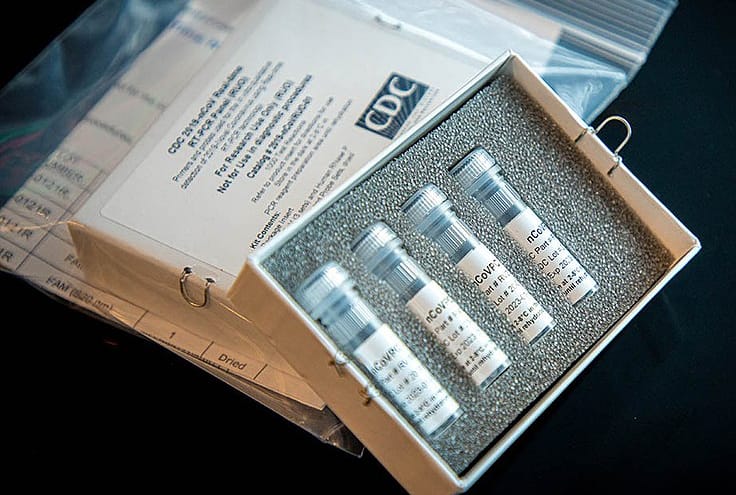What COVID-19 shows us about the preparedness and response of our health care and public health systems to this pandemic foretells our ability to withstand other more complex and looming issues, like climate change. We don’t know for sure whether climate change had a hand in the development of the novel COVID-19 virus. What we do know is that climate change has the ability to make the development of novel viruses and the spread of disease more or less likely by impacting animal behavior and migration, and the seasons in which particular diseases are more prevalent.
So ensuring we are prepared in the face of something like COVID-19 is essential to withstanding future crises – whether that’s 5 years from now, 10 years from now, or 50 years from now. We should be able to look back on this time and say, we took this seriously and did everything in our power to further prepare our society for just such another emergency.
I see no better time to make sweeping and meaningful changes than in a time of crisis – if we can’t act now, when will we?
It’s critical that we pay attention to the weaknesses and gaps in our systems and take measures to bolster them. Our preparedness and response to COVID-19 serves as a canary in a coal mine. Now it’s up to us to act on the lessons before us. The signs are already there that we’re not adequately prepared.
Overwhelming the Health Care System
The U.S. health system is not built to withstand an outbreak like that in Wuhan, China, according to several sources, including Dr. David Toner in a recent NPR interview. The number of ventilators, machines that help people with respiratory illness breath and a key piece of equipment for preventing COVID-19 deaths, falls short of the number that would be needed. Further exacerbating the issue is the large number of uninsured who may be at high risk for the virus, let alone those patients who present with heart attacks, strokes, or other serious health emergencies.
An article in Time highlighted how several states are working to prepare for an overload on the health system, including enacting states of emergency that require social distancing measures to “flatten the curve.” But without widespread testing and access among those who are uninsured and vulnerable, we are still in the dark about the extent of the virus’s spread in the United States and that hampers our ability to respond effectively. As a result, our nation’s failure to ramp up and provide access to testing early enough and quick enough could cost lives.
To be sure, it’s not just the responsibility of our health care system to care for people’s health. By the time we get to the clinic or hospital, we’re already sick. Our ability to keep people healthy and the measures we take to prepare for, prevent, and otherwise mitigate a crisis, like COVID-19, such as widespread testing, will have direct repercussions to our personal health, and to our health and economic systems.
Moving Our Policies Out of the Stone Ages
For instance, the U.S. is one of the only countries to not mandate paid sick leave for employees. According to a PRI article, “at least 20 million Americans go to work sick because of a lack of sick leave.” And 24% of U.S. workers don’t have access to paid sick leave. In the midst of a serious outbreak, that’s the last thing we want, which is why several bills have been drafted to provide relief, including paid sick leave. However, a bill that would provide just that was initially blocked in the Senate. A second attempt that passed in the House has yet to see a Senate vote. According to a Wall Street Journal article, it’s a scaled-back version of the initial bill and would only provide two weeks of paid leave to specific populations impacted by coronavirus.
Paid sick leave is needed immediately amidst COVID-19, but it’s not something we should toss aside once the worst is over. Preventive measures help ensure there are people well enough to keep businesses and the economy running. People who become sick and lose their job because they don’t have adequate leave aren’t contributing to the economy. The more we can provide for people upfront to keep them from getting sick, or to keep an illness from bankrupting a family, the better off we will all be and the better our economy will be for it.
94% of the world’s countries have paid sick leave, which begs the question: if they can do it, why can’t we? And paid sick leave is just one among many measures we need to be considering now and moving forward.
The Haves and the Have Nots
Crises such as this make glaringly obvious how we have failed those who have face low wage jobs, unstable housing, and lack of access to basic necessities like health care and food. As we respond, we need to take measures that protect these people within our community. Ensuring that all people have access to what they need to be healthy and to actively engage in society will benefit everyone. But there are also nuances to our response that impact some more than others.
The Director of the Kansas City, Missouri, Health Department, Dr. Rex Archer, indicated during a special meeting with the Mayor and City Council on Monday, March 16 that closing schools may do more harm than good. We’ve seen that the virus doesn’t spread readily in youth under the age of 19 and, if they do get it, they don’t get very sick. Closing schools puts additional strain on people who are already struggling to feed their kids, to pay for childcare, or who have abusive homes.
We must make sure that all people are taken care of during a crisis, especially those who are most vulnerable. An image has been moving around the Internet urging shoppers to leave items for WIC recipients on the shelves. Other groups have been sharing resources and making trades, such as business services in exchange for childcare. These types of responses show how a community can come together and use human ingenuity to respond in times of crisis, but is it all enough?
Is it Enough?
Even while there are those who scoff at the measures being taken across the country, the question in the minds of many right now is this – are we doing enough and are we doing it soon enough? To be sure, we are learning more day by day. We have yet to see the full extent of how COVID-19 will impact our health systems or how it will impact our society six months from now, a year from now, or beyond. But that is precisely why we need to acknowledge the chance we have now to pay attention as things unfold, to take note, and to subsequently take action, ideally before our systems start to fail us. We have already made several missteps. Our ability to learn from these mistakes is critical.
That’s why this is a time to take an inventory of the policies and practices we have in place to protect the health and well-being of our communities, and in that inventory to critically assess strengths and weaknesses so that we will be prepared for the next epidemic or other, more complex emergencies, like those due to climate change. Its these preparations that can be our boot camp for future emergencies. Whether or not those things befall us, being prepared and righting our issues now just makes sense.



